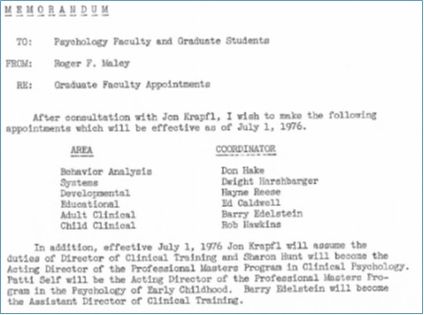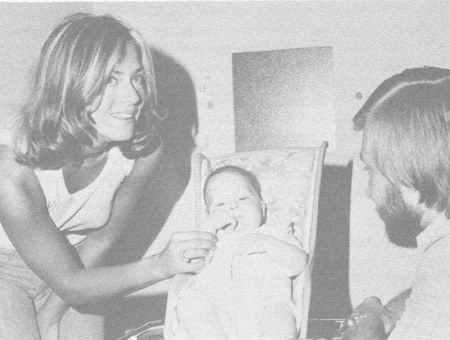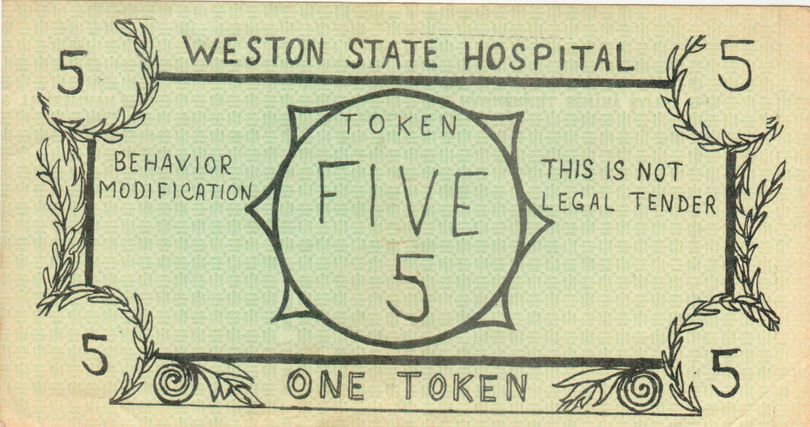The three doctoral program areas (Experimental Psychology, Clinical Psychology, and
Life Span Developmental Psychology) emerged from the 1960s at a time of political
unrest, mostly due to the nation’s ongoing involvement in the Vietnam War. In comparison
to other institutions, the degree of student protest was not substantial, but tear
gas made its way onto the campus immediately in front of Oglebay Hall in May of 1970
when police attempted to curtail a large group protesting the university administration’s
failure to take a stance on the war.
During the 1970s, the graduate program in psychology represented WVU well nationally as well as across the state of West Virginia. Psychology faculty were equally adept at presenting papers at national conferences as they were consulting with state hospitals, clinics, schools, and the local community of service providers. The three doctoral program areas were well balanced, each having relatively equal resources with respect to faculty lines, graduate student allocations, and access to space. By 1975, however, several new faculty were hired into the Clinical Psychology program area to assist in covering course content pertinent to providing clinical services to children and youth with behavioral health problems. Although the need was great for this psychological expertise at WVU, one unforeseen consequence of this action was that the number of faculty in the Clinical Psychology program area then more than doubled the number of faculty in either the Experimental or Life Span Developmental Psychology program areas. This state of affairs led to what is commonly referred to as the “Departmental Re-Organization.”
 Facilitated by Jon Krapfl, Associate Chair in 1975 and Director of Graduate Training from 1976-78, the result of the Re-Organization
is outlined in the memo from Chair Roger Maley seen here. Several notable changes occurred. First, the
Experimental Psychology program area elected to focus on one area of experimental
psychology, behavior analysis. Because of this decision, an experimental psychologist
who did not conduct research in the area of behavior analyses was re-assigned to
another program area. Second, the Clinical Psychology faculty was sub-divided into
Adult Clinical, Child Clinical, and Systems program areas based upon each faculty member's primary
foci of research. Assigning faculty to Adult and Child Clinical Psychology areas
was fairly easy based upon the age of the patients with whom the faculty member concentrated
his/her research or clinical efforts. In contrast, the Systems Psychology program
area was comprised of faculty across all other program areas who were interested
in conducting program evaluation and consultation research. In this regard, all Systems
faculty held appointments in one of the other graduate program areas but also comprised
the core faculty of the Systems program area.
Facilitated by Jon Krapfl, Associate Chair in 1975 and Director of Graduate Training from 1976-78, the result of the Re-Organization
is outlined in the memo from Chair Roger Maley seen here. Several notable changes occurred. First, the
Experimental Psychology program area elected to focus on one area of experimental
psychology, behavior analysis. Because of this decision, an experimental psychologist
who did not conduct research in the area of behavior analyses was re-assigned to
another program area. Second, the Clinical Psychology faculty was sub-divided into
Adult Clinical, Child Clinical, and Systems program areas based upon each faculty member's primary
foci of research. Assigning faculty to Adult and Child Clinical Psychology areas
was fairly easy based upon the age of the patients with whom the faculty member concentrated
his/her research or clinical efforts. In contrast, the Systems Psychology program
area was comprised of faculty across all other program areas who were interested
in conducting program evaluation and consultation research. In this regard, all Systems
faculty held appointments in one of the other graduate program areas but also comprised
the core faculty of the Systems program area.
Click here to view a timeline of faculty comprising the Child Clinical/Clinical Child Psychology area
Click here to view a timeline of faculty comprising the Systems Psychology area
Prior to the Re-Organization, the department had hired an educational psychologist, Edward Caldwell, to coordinate a joint program in Educational Psychology with several faculty in the College of Human Resources and Education. The Re-Organization did not alter the constellation of this joint program or the Life Span Developmental Psychology program area.
Click here to view a timeline of faculty comprising the Educational Psychology area
 A few changes to the MA program also occurred during the 1970s. First, a non-thesis
option was introduced for graduate students who did not desire to conduct research
or subsequently plan to apply to doctoral programs. Most trainees opting for the
non-thesis option desired to accept positions in agencies that provided behavioral
health care services [later referred to as the Professional Master of Arts (PMA)
Program in Psychology], but some were interested in accepting teaching positions
in preparatory schools or teaching colleges. Second, based on a strong interest among
prospective students to acquire training in early childhood education to prepare
them to accept positions in day care or nursery school settings, the department offered
a master’s program in early childhood education from 1974 to 1978. Students acquired
hands-on experience, shown in the photo above, working in the Infant Development
Laboratory.
A few changes to the MA program also occurred during the 1970s. First, a non-thesis
option was introduced for graduate students who did not desire to conduct research
or subsequently plan to apply to doctoral programs. Most trainees opting for the
non-thesis option desired to accept positions in agencies that provided behavioral
health care services [later referred to as the Professional Master of Arts (PMA)
Program in Psychology], but some were interested in accepting teaching positions
in preparatory schools or teaching colleges. Second, based on a strong interest among
prospective students to acquire training in early childhood education to prepare
them to accept positions in day care or nursery school settings, the department offered
a master’s program in early childhood education from 1974 to 1978. Students acquired
hands-on experience, shown in the photo above, working in the Infant Development
Laboratory.
The Re-Organization achieved a relatively balanced graduate program structure that has stood the test of time for four of the doctoral program areas: Behavior Analysis, Adult Clinical Psychology (Clinical Psychology after 2004); Child Clinical Psychology (Clinical Child Psychology after 2004); and Life Span Developmental Psychology. Each program area was comprised of 4-7 faculty members and made offers of admission to approximately four graduate students each year from 1976 until the current time.
Neither the joint Educational Psychology nor the Systems Psychology program areas lasted as long. Psychology’s participation in the Educational Psychology program was discontinued in 1980, shortly after the Re-Organization. The program itself continues in the College of Human Services and Education, but it is entirely staffed by faculty in that unit.

A token script devised by faculty and students at WVU for use at Weston State Hospital in the 1970s
The Systems Psychology area of emphasis was quite active for five years following the Re-Organization. Several projects were conducted at Weston State Hospital, one of which involved the implementation of a token economy for managing behaviors of those housed at this institution. By 1980, however, most of the faculty with interests in this area of research had resigned and accepted positions elsewhere. Although Professor Stanley H. Cohen continued the program area for another decade by offering it as an area of concentration for students from one of the other program areas with interests in program evaluation and consultation, the program was discontinued in 1992.
Another notable event occurred during this era when psychology major, Lea Anderson, was elected student body president in 1976. Lea was the first woman elected into this position at WVU and went on to earn a law degree at WVU in 1979 and lead a successful career as an attorney in the Pittsburgh area.
< History HOME NEXT History Page >
During the 1970s, the graduate program in psychology represented WVU well nationally as well as across the state of West Virginia. Psychology faculty were equally adept at presenting papers at national conferences as they were consulting with state hospitals, clinics, schools, and the local community of service providers. The three doctoral program areas were well balanced, each having relatively equal resources with respect to faculty lines, graduate student allocations, and access to space. By 1975, however, several new faculty were hired into the Clinical Psychology program area to assist in covering course content pertinent to providing clinical services to children and youth with behavioral health problems. Although the need was great for this psychological expertise at WVU, one unforeseen consequence of this action was that the number of faculty in the Clinical Psychology program area then more than doubled the number of faculty in either the Experimental or Life Span Developmental Psychology program areas. This state of affairs led to what is commonly referred to as the “Departmental Re-Organization.”
Click here to view a timeline of faculty comprising the Child Clinical/Clinical Child Psychology area
Click here to view a timeline of faculty comprising the Systems Psychology area
Prior to the Re-Organization, the department had hired an educational psychologist, Edward Caldwell, to coordinate a joint program in Educational Psychology with several faculty in the College of Human Resources and Education. The Re-Organization did not alter the constellation of this joint program or the Life Span Developmental Psychology program area.
Click here to view a timeline of faculty comprising the Educational Psychology area
The Re-Organization achieved a relatively balanced graduate program structure that has stood the test of time for four of the doctoral program areas: Behavior Analysis, Adult Clinical Psychology (Clinical Psychology after 2004); Child Clinical Psychology (Clinical Child Psychology after 2004); and Life Span Developmental Psychology. Each program area was comprised of 4-7 faculty members and made offers of admission to approximately four graduate students each year from 1976 until the current time.
Neither the joint Educational Psychology nor the Systems Psychology program areas lasted as long. Psychology’s participation in the Educational Psychology program was discontinued in 1980, shortly after the Re-Organization. The program itself continues in the College of Human Services and Education, but it is entirely staffed by faculty in that unit.
A token script devised by faculty and students at WVU for use at Weston State Hospital in the 1970s
The Systems Psychology area of emphasis was quite active for five years following the Re-Organization. Several projects were conducted at Weston State Hospital, one of which involved the implementation of a token economy for managing behaviors of those housed at this institution. By 1980, however, most of the faculty with interests in this area of research had resigned and accepted positions elsewhere. Although Professor Stanley H. Cohen continued the program area for another decade by offering it as an area of concentration for students from one of the other program areas with interests in program evaluation and consultation, the program was discontinued in 1992.
Another notable event occurred during this era when psychology major, Lea Anderson, was elected student body president in 1976. Lea was the first woman elected into this position at WVU and went on to earn a law degree at WVU in 1979 and lead a successful career as an attorney in the Pittsburgh area.
< History HOME NEXT History Page >